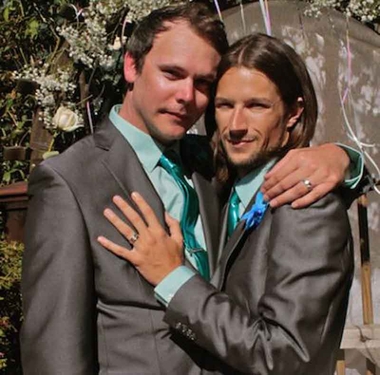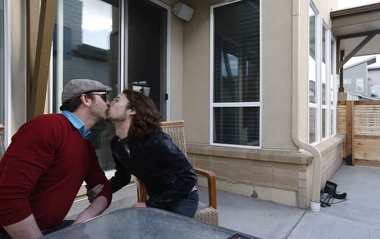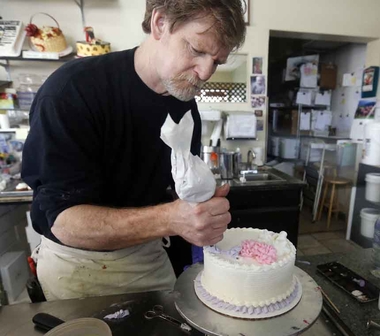Let them eat cake

by Janice Francis-Smith
Staff Writer
Throwing a rock at your neighbor is not “artistic expression” protected as free speech – and chaos would ensue nationwide if the court were to accept that argument in the case of Masterpiece Cakeshop v. Colorado Civil Rights Commission.
“If you allow an exception like this, in the end you’re going to eventually have to put limits on the kind of anarchy it would unleash,” said Robert Post, Sterling Professor of Law at Yale Law School.
“It’s a very broad claim that would effectively undo anti-discrimination laws generally.”
The case has the potential to erode both First Amendment rights and anti-discrimination protections for everyone in the country, according to legal experts weighing in on the arguments being presented in the lawsuit.
The case is scheduled to be taken up by the U.S. Supreme Court on December 5.

In July 2012, Masterpiece Cakeshop owner Jack Phillips refused to provide a wedding cake to Dave Mullins and Charlie Craig. Phillips said he objected to same-sex marriage due to his religious beliefs.
Phillips refuses to make cakes that would promote anything that would violate his conscience, including Halloween, atheism, anti-American sentiment or racism, according to court filings.
Arguing that his cakes are artistic expressions, Phillips claims his actions are protected under the First Amendment.
By that argument, any action could be construed as an expression of free speech, said Post.
“I could say when I throw a rock through your window, I don’t like you, I’m sending a message,” said Post.
“Then the country becomes ungovernable. ... We’re going to undermine the strength of First Amendment protections.”

Everyone suffers if the First Amendment is weakened to the point where it cannot protect citizens when they need it most: when the government tries to corrupt an individual’s free speech.
In these times, we can’t afford to lose that protection, said Post.
Works of art are protected free speech, but when an artist chooses to offer their work for sale to the public, they cannot do so in a way that violates anti-discrimination laws, said attorney Floyd Abrams of the Cahill, Gordon & Reindel law firm.
“This case is one, on its face, of overt discrimination,” said Abrams.
“It’s no different conceptually than if an artist, a painter, offered to paint people at a gallery for a fee but refused to paint black people.”
The same arguments made now by those defending Phillips were made repeatedly during the civil rights era by businesses owners who tried to use religious freedom as an excuse for segregation, said Samuel Bagenstos, Frank G. Millard Professor of Law at the University of Michigan Law School.
“Really, this case and the arguments here are a very old story,” said Bagenstos.
“For as long as we have had anti-discrimination laws, we have had constitutional challenges to those laws on the grounds that businesses have the right to pick and choose their customers.”
Throughout the 1960s, business owners claimed in court filings that racial segregation was “the will of God”.
They argued that forcing them to serve everyone equally “impeded the right of businesses to decide with whom to associate,” said Bagenstos. The courts have repeatedly rejected this idea, he said.
“If you’re a business and you hold yourself open to the public, you don’t have a constitutional right to discriminate in your choice of customers,” said Bagenstos.
The issue at stake is not whether individuals are able to obtain similar services from other businesses, Bagenstos said.
“The harm is a dignitary harm,” he said. “It’s the harm of having to face the stigma and humiliation of being turned away somewhere, or having to wonder all the time if you will be turned away somewhere.”
This is the harm the courts have repeatedly sought to remedy with consistent rulings against discriminatory practices.
“What the Colorado Civil Rights Commission ordered the bakery to do is to provide the same services to same-sex couples that they would provide for anybody else,” said James Esseks, Director of the ACLU LGBT & HIV Project.
The United States Department of Justice has filed a brief supporting Phillips, saying creating a wedding cake falls under freedom of speech protections in the Constitution.
Copyright The Gayly – December 4, 2017 @ 7 a.m. CST.





